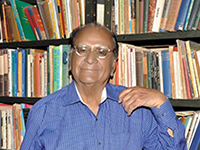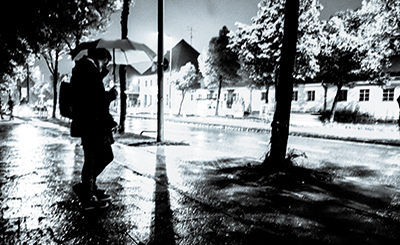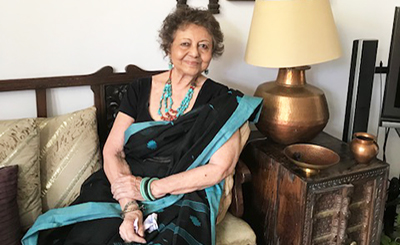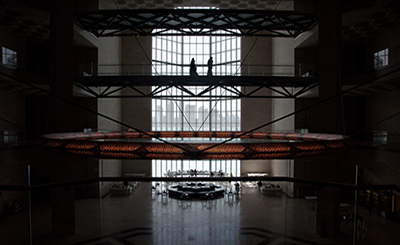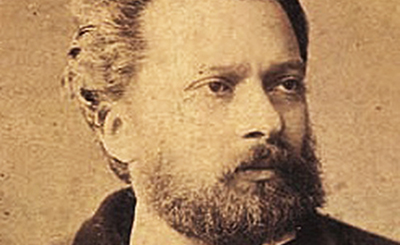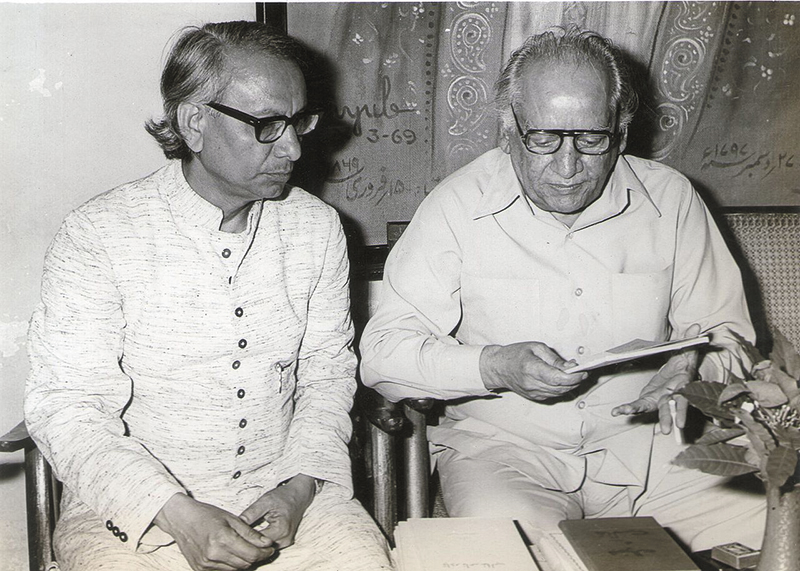
Introduction
Faiz Ahmed Faiz was born on February 13, 1911 at Kala Kader, Sialkot, Punjab. He had his education at Scotch Mission School and Murray College, Sialkot. He obtained his Master’s degree in English from Government College, Lahore and his Masters in Arabic from Oriental College, Lahore. He then joined the Progressive Writer’s Movement and came to be known as an avowed Marxist. He began his academic career as a lecturer in English at M.A.O College, Amritsar, and later taught at Hailey College of Commerce, Lahore. Subsequently, he took to journalism and became editor of Imroze, and then worked as Chief Editor of The Pakistan Times. During the war between India and Pakistan in 1965, he worked in an honorary capacity in the Department of Information. Thereafter, for his anti-Pakistan utterances (attitude), he voluntarily went into exile during which he acted as Editor of the magazine Lotus in Moscow, London and Beirut.
As a distinguished poet in Urdu, he is known for the following works:
1. Naqsh-e-Faryadi (1943)
2. Dast-e-Saba (1952)
3. Zindan-Nama (1956)
4. Dast-e-Tah-e-Sung (1965)
His poetry has been translated into English, Russian and Baluchi — and several critical books and articles have been published celebrating his genius as a renowned poet.
In recognition of his literary eminence he has received several prestigious awards, including MBE (1946), Lenin Peace Prize (1963), The Avicenna Award (posthumous), Nigar Awards — but, above all, the Nishan-e-Imtiaz (Pakistan’s Highest Civilian Award), posthumous, in 1990. Before his death, he was also nominated for the Nobel Prize. He died of cardiac arrest on November 20, 1984 in Lahore.
If Faiz Ahmed Faiz became a legend during his lifetime, it was because he was a multi-faceted genius — a distinguished poet, a political thinker who was committed to Marxism in his early years, a liberal humanist and, above all someone who never surrendered his integrity to the Pakistani rulers of his time. Truly speaking, Faiz was a citizen of the world who did not recognise any barriers between countries, religions and languages. Being an irrepressible political and social activist, he spent many years in prison, and also as an exile in Lebanon and England. No wonder that prison emerges as an expanded metaphor in many of his poems. While he was languishing away in Lebanon, he met Edward Said, the renowned Orientalist who said that he "was the greatest of contemporary Urdu poets".
It was during l 979 that I met Faiz Ahmed Faiz in Hyderabad where I was head of the department of English at Osmania University. Since Professor Rafia Sultana, head of the department of Urdu at the university knew that I was a great admirer of Faiz’s poetry, she invited me to preside over his poetry reading. I felt honoured at this invitation because I looked upon Faiz as the greatest Urdu poet of my time. He was a very handsome man with eyes that sparkled with curiosity and a face that glowed with creative fervour. As I was leading him to the venue of his recital, I spoke to him in Punjabi, a language we shared as our native tongue. I told him how his work had influenced my poetry although I wrote only in English.
Smiling, he said, “Professor Kumar, why do you say all this? I feel embarrassed when I hear praises showered on me. Why have I been built into a legend when I’m a very ordinary poet?” He paused for a while and resumed, “You know, if you look closely at my work, you may notice that most of my poems are pedestrian. In my ghazals and nazms, I often rhyme just to complete a couplet — even when my inspiration is sagging. I hope you would agree with me that a poet should write only when something, an image, an event, or a person, excites him intensely."
Overwhelmed by his humility, I said, “This is where lies your real greatness, Faiz saheb. I haven’t known many poets who would be so modest as yourself. In fact it is only a mediocre poet who blows his own trumpet. And here you are, the greatest poet of our time, saying your poetry is not all that great.”
It was at this moment that I decided to translate his works into English because Urdu also came naturally to me, second only to English in which I wrote my fiction and poetry. Turning to him, I said, “This is almost a moment of awakening for me because I have just decided to translate your work even if I’ve to give up my own writing for some time.”
“I feel sorry for you, because you’d be wasting your time in translating me when I don’t deserve this honour.” There was a pause in our conversation. Then I asked him, “How do you feel when you are applauded by critics?”
Promptly came his response, “Oh, these professional critics are like sleuths, who pry into your private emotions, often saying things they don’t mean. They write about others just to feed their own ego. Let me tell you that I often avoid reading any literary criticism of my work.”
That was another observation that impressed me. “This is another mark of your greatness. Most poets relish reading critical articles written on their work while you don’t.”
We had this long conversation, as I was leading him to the venue. It was a spacious hall, fully packed. As I sat next to him on the dais, I fumbled for words. How shall I introduce this great poet to the audience? That was an occasion when I made my first speech in Urdu. I started off: “I’m gratified, ladies and gentlemen, to introduce to you a legend, already known to everyone. But if I have to speak about him, let me say that I share several things with Faiz Ahmed Faiz. Firstly, he is from my homeland, so I can claim to be his compatriot. Most of my friends here may not know that I was born in Lahore, and had my schooling and college education in that city. And that was also the city where Faiz saheb lived most of his time, wrote his poetry and edited The Pakistan Times. Secondly, we share the same native tongue, Punjabi, although I’ve always said that it is only my mother’s tongue because I can neither read nor write in it. Thirdly, both of us started our career as lecturers in English. While he’s a lecturer in Amritsar, I started my career in Lahore at the D.A.V. College. This may explain the emotional bond that links us together. Saying these words, I turned to Faiz and invited him to recite his poems. “My personal farmaish is for his famous poem ‘Ask me not for my old fervor’ (mujh se pehli si muhabbat mere mehboob na maang). Wasn’t this the poem that set a new trend in Modem Urdu poetry?”
Somewhat flushed, he started reciting the poem in which he says that he is no longer interested in the affairs with his beloveds. There are far profounder commitments in life — his compassion for the labourer classes and his· protest against tyranny. As the poem concluded, there was a loud applause from the audience.
Then he recited other poems from memory. When he finished reciting, I said, “This will remain a memorable day in my life, Faiz saheb. I wish you could have carried on much longer.” The same evening I was to meet him at the residence of a friend, another admirer of Faiz Ahmed Faiz. It was a small gathering of about a dozen people who had read his poetry very closely. That gave me another opportunity to talk to him informally. Of course, he recited some more poems which were appreciated by the audience. Now, he asked me, “Why don’t you recite one of your own poems even if it is written in English? You know that I write in English as well.” He added, “Wasn’t I the editor of The Pakistan Times for some years? Also, you’ve mentioned yourself that I started my career in Amritsar as a lecturer in English. So let us have something from you as well, Mr. Kumar.”
A little embarrassed, I couldn’t think of reciting any of my poem’s worthy of this great poet. But if I agreed to recite something, it was to get a feedback from him. For a moment, I felt embarrassed to read a poem in English, a language that was so different from Urdu. I’d often said in public that English is a highly-constipated language, while Urdu was highly charged with emotion. I decided to read a short piece titled “Adolescence”:
I have no longer the innocence to judge you.
All I know is you already feel the power
of stone, the ligature between your wisp
of moustache and the new peril
lurking in your groin.
I wish you also knew that if you let
Some Delilah in on your secret, you —
come home bleeding to the rooster.
Your fingers will now break into
many languages — the language of the trigger
and guitar — of the contours of your girl’s
breast waiting to be read like Braille.
But if your fingers probe any deeper
than the serpent’s tail, they may sizzle
like grilled sausages — and your apocalypse
turn into a nightmare.
Father used to say: if you can tame the
genie of your nascent power, the
pyramids will give out their mysteries
and the moon craters fill up with ambrosia.
But who cares?
Page
Donate Now
More from The Byword
Comments
*Comments will be moderated



